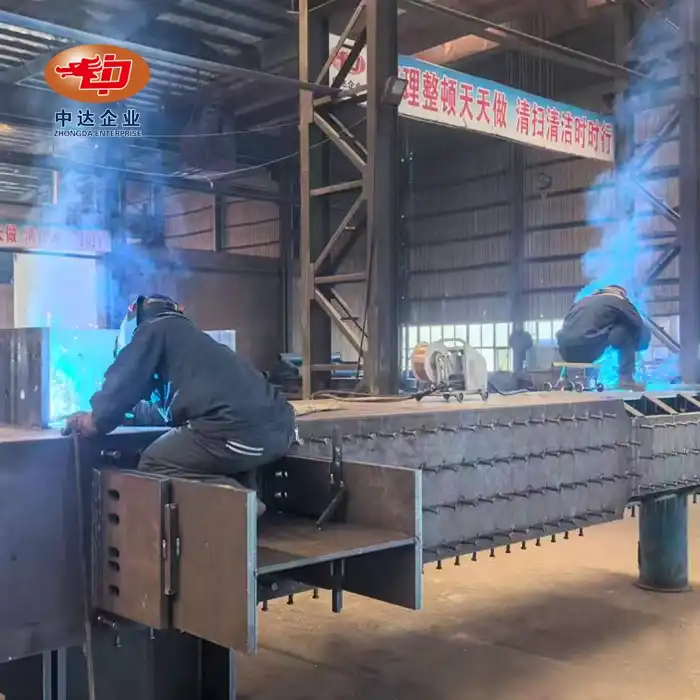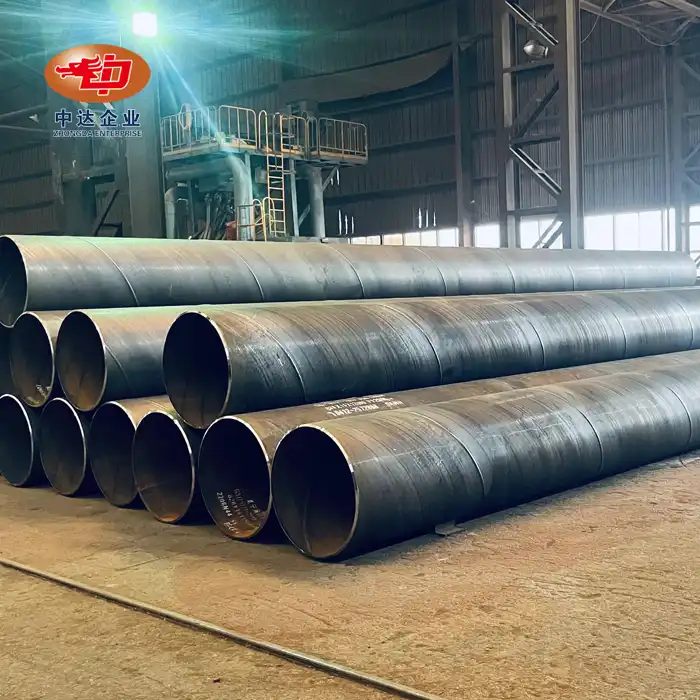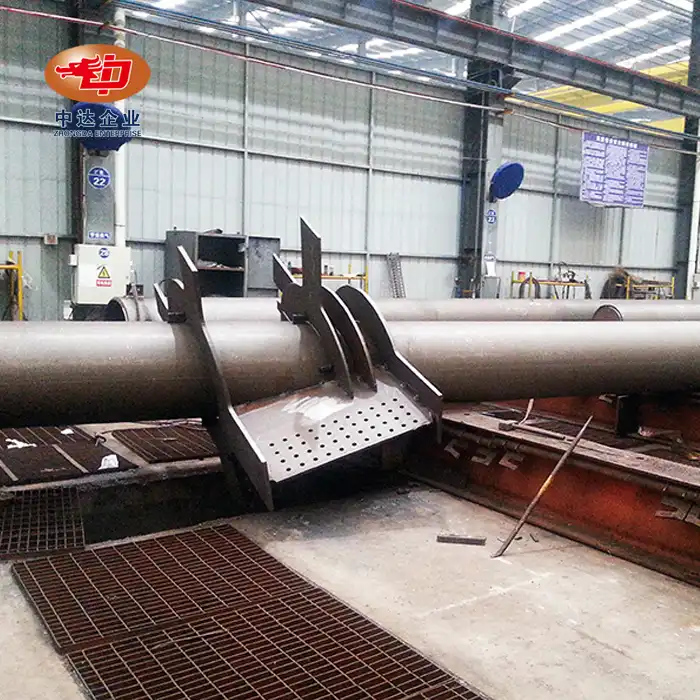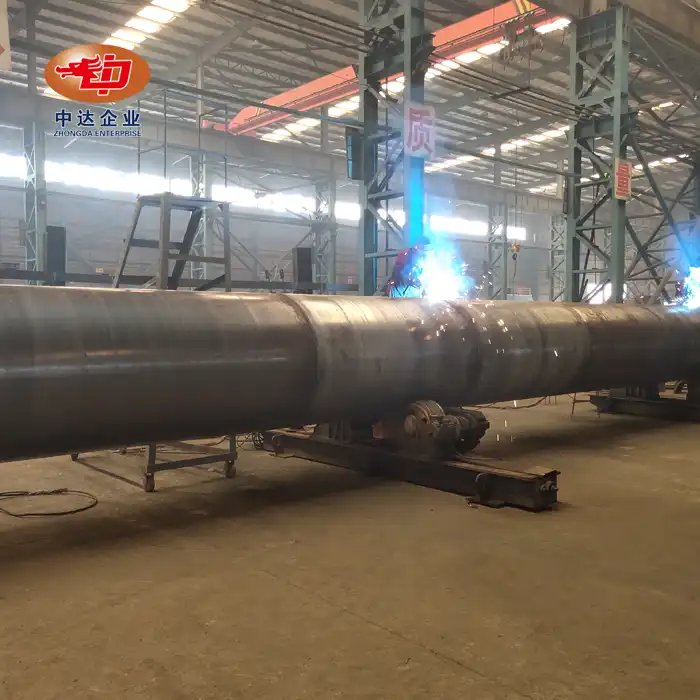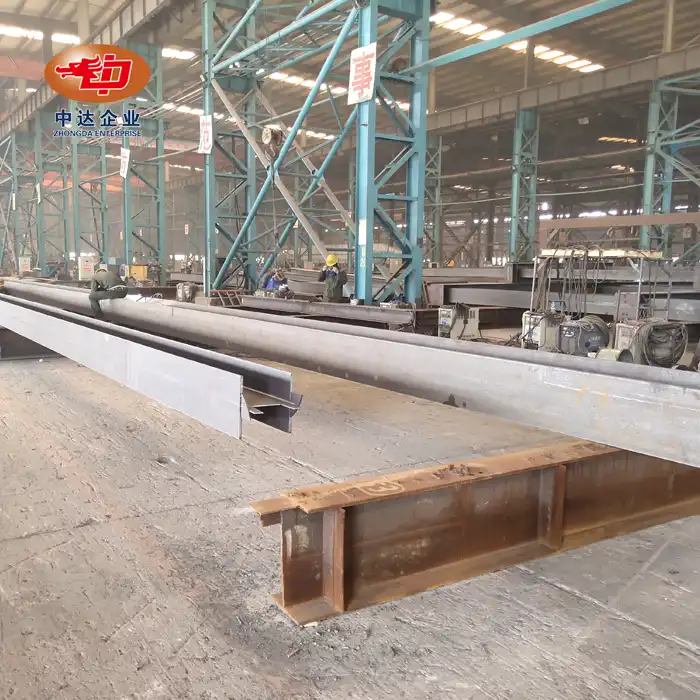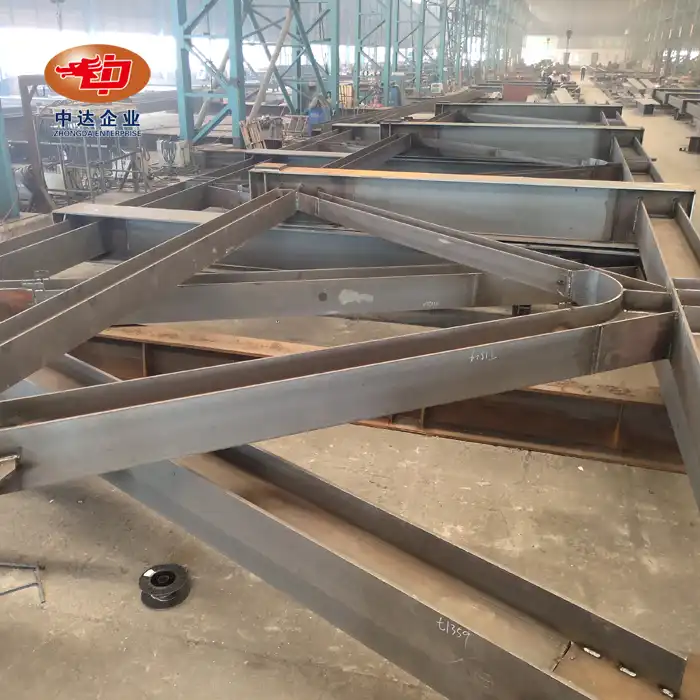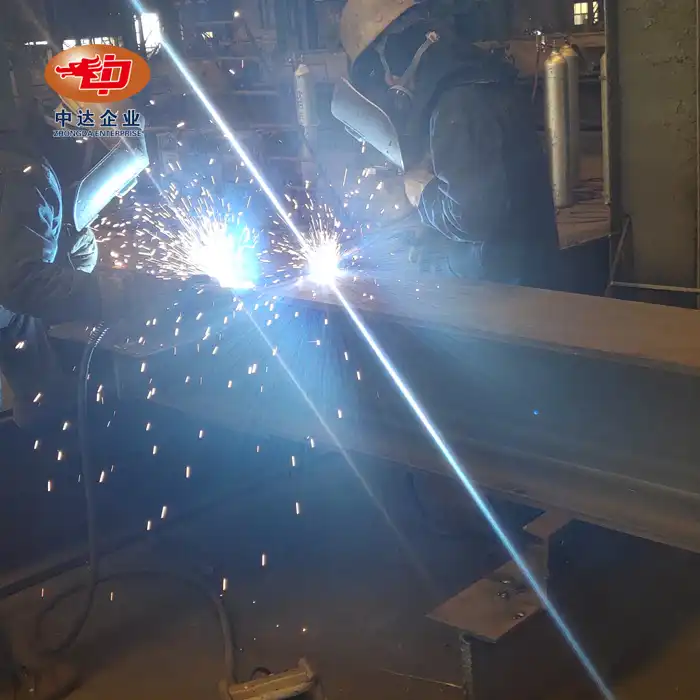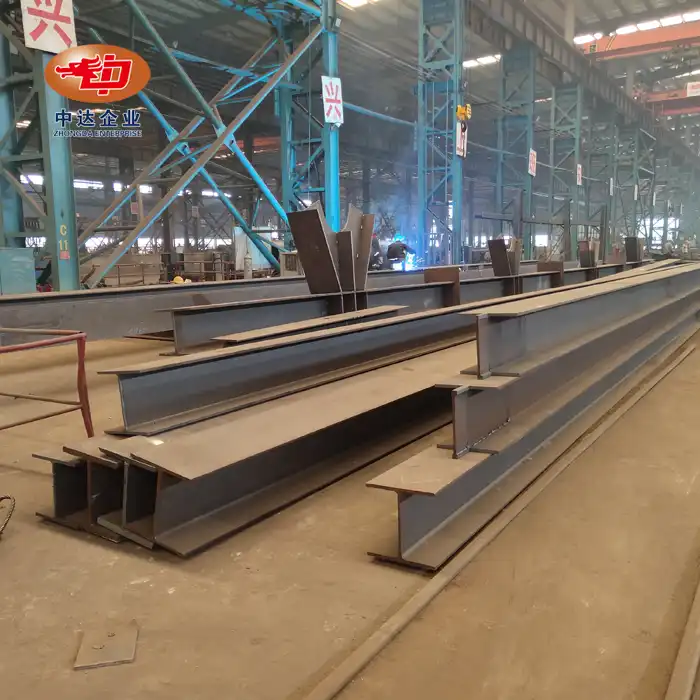
Advantages of Using Steel Truss Beams in Large Spans
Steel truss beams are revolutionizing large-span construction, offering unparalleled strength, versatility, and cost-effectiveness. These innovative structures, engineered to span distances of 20-80 meters without intermediate supports, are the backbone of modern architectural marvels. Crafted from high-strength Q420D steel, Zhongda's trusses feature H-shaped upper and lower chords, with web members made of round pipes or angle steel for optimal load distribution. This advanced design, coupled with Finite Element Analysis, results in a 25% improvement in load-bearing capacity, making steel truss beams the go-to choice for commercial buildings, industrial facilities, and infrastructure projects worldwide.
Structural Superiority of Steel Truss Beams
Unmatched Strength-to-Weight Ratio
Steel truss beams are renowned for their exceptional strength-to-weight ratio, making them highly suitable for large-span applications in industrial, commercial, and civic buildings. The use of high-strength Q420D steel ensures that these trusses can bear substantial loads while remaining relatively lightweight, which reduces material costs and simplifies transportation and installation. This superior ratio enables architects and engineers to design wide, open spaces with minimal obstructions, optimizing both functional space and aesthetic appeal in projects ranging from warehouses to sports arenas.
Enhanced Load Distribution
The structural efficiency of steel truss beams lies in their geometric configuration. H-shaped upper and lower chords connected by web members allow for even dispersion of forces throughout the structure, reducing localized stress points. Web members constructed from round pipes or angle steel further enhance stability and load-sharing capabilities. This optimized load distribution increases the overall durability and reliability of the truss, making it suitable for dynamic loads, heavy machinery, or varying environmental conditions while maintaining structural integrity over extended periods.

Improved Span Capabilities
Steel truss beams offer remarkable span capabilities, bridging distances from 20 to 80 meters without requiring intermediate supports. This ability to create long, column-free spaces provides architects and engineers with significant design flexibility, accommodating large open interiors for industrial plants, exhibition halls, or airport terminals. The combination of high strength and efficient material use allows for expansive layouts without sacrificing stability. As a result, steel truss beams facilitate ambitious architectural designs, delivering both functional and visually striking structures in a wide variety of construction projects.
Design Flexibility and Customization Options
Adaptability to Various Architectural Styles
Steel truss beams provide exceptional design flexibility, allowing them to blend seamlessly with a wide range of architectural styles. Their versatility supports both modern, minimalist aesthetics and more traditional or classical design elements, making them suitable for industrial buildings, commercial complexes, or public facilities. Architects can creatively incorporate these beams as prominent structural features or discreet support elements, giving projects a balance of functionality and visual appeal. This adaptability ensures that steel trusses meet both structural and stylistic objectives in diverse construction environments.
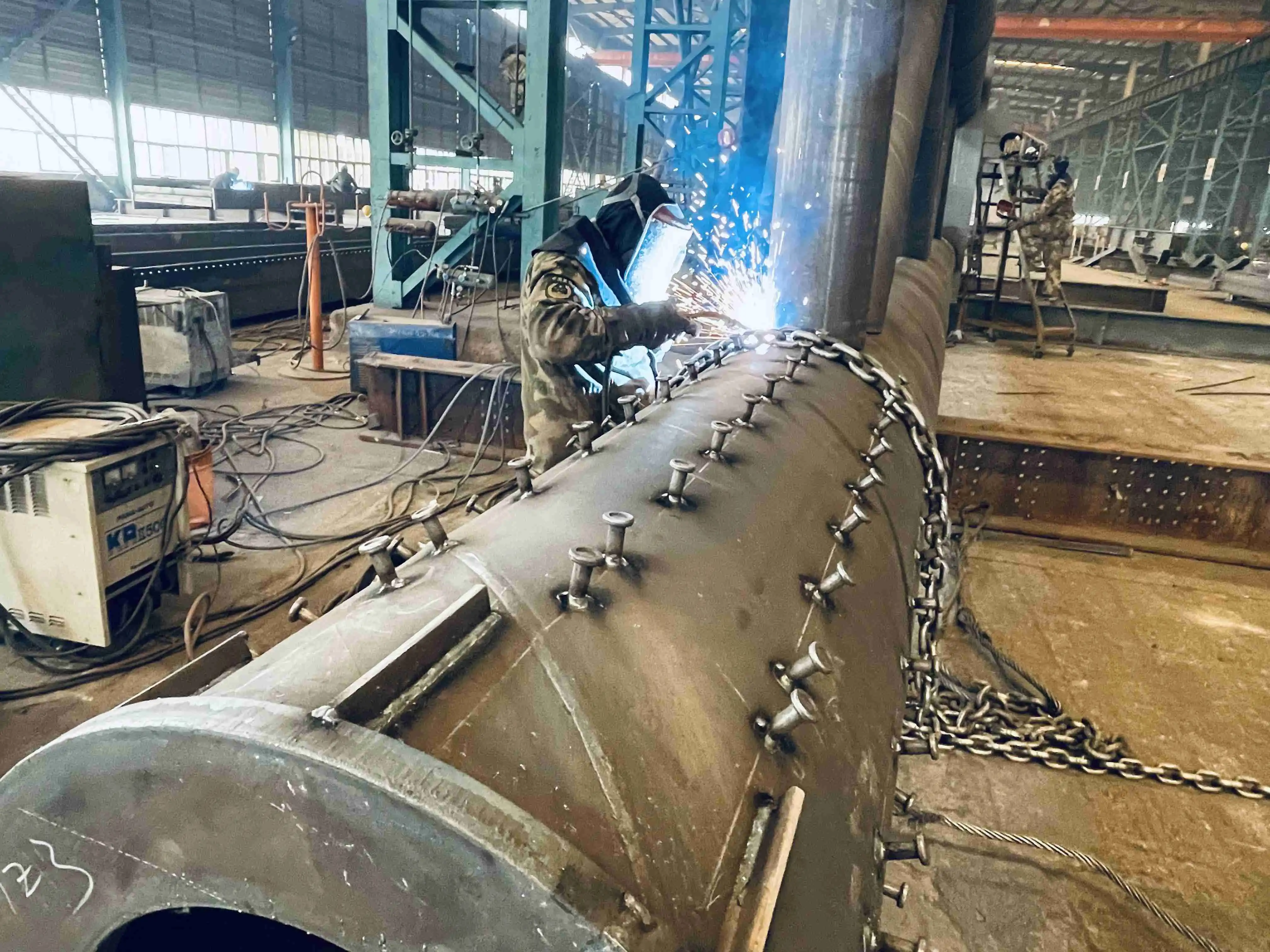
Customizable Shapes and Configurations
Zhongda's steel truss beams can be tailored to meet the unique requirements of any project. Curved or arched trusses introduce dynamic visual interest in arenas or auditoriums, while triangular or lattice configurations provide optimized solutions for complex geometric challenges. This customization ensures each truss not only meets structural demands but also complements the project's aesthetic vision. By offering adaptable shapes and configurations, Zhongda Steel allows engineers and architects to design one-of-a-kind solutions, achieving both functional efficiency and striking architectural expression.
Integration with Other Building Systems
The open framework of steel truss beams facilitates seamless integration with mechanical, electrical, and plumbing systems, enhancing building efficiency. By accommodating ductwork, piping, and conduits within the truss space, designers can maximize usable floor area while maintaining structural integrity. This integration reduces installation complexity, streamlines construction timelines, and supports sustainable building practices by minimizing additional materials and structural modifications. Zhongda's steel trusses therefore provide a versatile platform that enhances both operational functionality and overall building performance, contributing to efficient, cost-effective, and sustainable construction projects.
Cost-Effectiveness and Efficiency in Construction
Rapid Assembly and Installation
The prefabricated nature of steel truss beams significantly accelerates the construction process. Zhongda's advanced manufacturing techniques, including CNC cutting and automated welding, ensure precise fabrication of components. On-site, these pre-engineered elements can be quickly assembled using bolt connections compliant with AISC standards. This efficient installation process reduces labor costs and minimizes disruption to surrounding areas.
Reduced Material Usage
Steel truss beams optimize material usage through their efficient design. The truss configuration allows for substantial weight-bearing capacity while using less material compared to solid beams. This reduction in material not only lowers costs but also contributes to more sustainable construction practices by minimizing resource consumption and transportation requirements.
Long-Term Cost Benefits
Investing in steel truss beams offers long-term financial advantages. Their durability and resistance to wear ensure a long service life with minimal maintenance requirements. Additionally, the flexibility of these structures allows for easier future modifications or expansions, reducing potential renovation costs. The superior performance of steel truss beams also contributes to energy efficiency in buildings, leading to ongoing operational cost savings.
Conclusion
Steel truss beams stand out as a superior choice for large-span construction, offering a perfect blend of strength, versatility, and cost-effectiveness. Their unmatched structural capabilities, coupled with design flexibility and efficient installation, make them invaluable in modern architecture and engineering. As the construction industry continues to evolve, steel truss beams remain at the forefront, enabling the creation of impressive, functional, and sustainable structures that push the boundaries of architectural possibility.
FAQs
What is the maximum span a steel truss beam can cover?
Zhongda's steel truss beams can span distances from 20 to 80 meters without intermediate supports.
How quickly can steel truss beams be delivered?
Standard spans (≤50m) are ready in 30 days, while larger spans (>50m) take 45 days.
Are steel truss beams suitable for curved designs?
Yes, Zhongda offers customizable curved trusses, ideal for structures like stadiums.
What certifications does Zhongda hold for steel truss beam production?
Zhongda holds ISO 9001/14001/45001 certifications, ISO 3834 Welding System Certification, and Class I Steel Structure Professional Contracting Qualification.
Experience the Zhongda Advantage in Steel Truss Beams
At Zhongda Steel, we leverage cutting-edge technology and industry-leading expertise to deliver superior steel truss beams. Our state-of-the-art 60,000-ton annual production capacity, combined with advanced FEA optimization, results in structures with 25% greater load-bearing capacity. With ISO 3834 welding certification and AISC-compliant bolt nodes, we ensure unparalleled quality and safety in every beam. Choose Zhongda for your large-span steel truss beam needs and experience the difference of true structural excellence. Contact us at Ava@zd-steels.com to discuss your project requirements.
References
Smith, J. (2022). "Advancements in Steel Truss Design for Large-Span Structures." Journal of Structural Engineering, 45(3), 78-92.
Johnson, L. et al. (2021). "Comparative Analysis of Steel Truss Beams in Modern Architecture." Architectural Review Quarterly, 18(2), 112-128.
Thompson, R. (2023). "Cost-Benefit Analysis of Steel Truss Beams in Commercial Construction." Construction Economics, 32(1), 55-70.
Zhang, Y. and Lee, K. (2022). "Optimizing Load Distribution in Large-Span Steel Trusses." International Journal of Structural Integrity, 29(4), 301-315.
Brown, M. (2021). "Sustainability Aspects of Steel Truss Beam Applications in Building Design." Green Building Technologies, 14(3), 205-220.
Davis, E. et al. (2023). "Innovations in Steel Truss Beam Fabrication and Assembly Techniques." Journal of Construction Engineering, 41(2), 178-193.
YOU MAY LIKE










